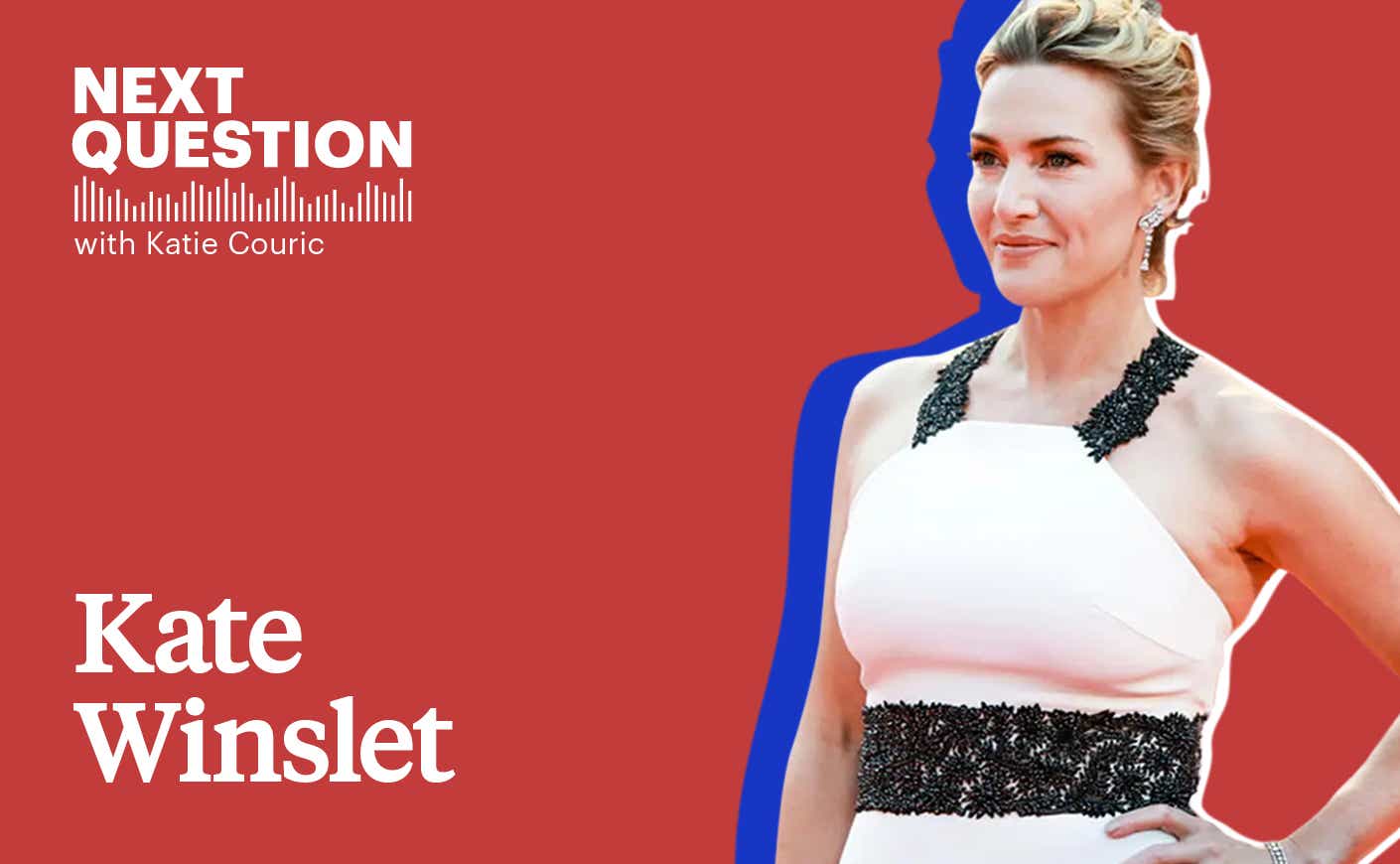Twenty-six years ago, Kate Winslet sat down for her first nationally televised, American interview. Katie Couric — then the co-host of the TODAY Show — interviewed the remarkably nervous, 20-year-old, up-and-coming actress. They recently reunited to discuss how far Winslet has come — and what she’s learned along the way.
“I was very self-conscious,” Winslet reminisced about her first encounter with Katie. “I remember being physically very self-conscious in those days.”
In this wide-sweeping interview, Katie and Kate talked about Hollywood in 2021 — their chat is totally timeless, but it’s also a little hilarious to look back upon our collective post-quarantine shell shock.
The two discussed the then-upcoming HBO series Mare of Easttown, which turned out to be a heart-wrenching hit (if you’ve never watched it, consider this a sign from the universe that you need to binge it ASAP). Plus, they talked about Winslet’s 2022 blockbuster, Avatar: The Way of Water, and the toxic business of Hollywood. Winslet reflected on working with ghoulish behemoths like Woody Allen and Harvey Weinstein — plus, she spoke candidly on what has and hasn’t changed.
Here are some of our favorite moments.
Katie Couric: I’m curious about how you feel things have changed for women in Hollywood since you started. I sense a palpable change. You’ve said, “It’s great to see women become more muscular.” But you also concede that there are miles to go before we sleep. I’m curious about your overall impressions of how #MeToo has had real-world impact on your industry.
Kate Winslet: Around the time of Titanic, I was subjected to the most extraordinary level of bullying from the media about how I looked. Social media now is the bigger worry when it comes to that stuff. But mainstream media — at least now — has stopped doing that. They don’t seem to single out someone and just absolutely attack them for being fat, for being thin. It’s incredible when I look back on how badly I was treated and singled out.
Was that scarring?
It definitely was scarring. I’m quite good at seeing things as being a blessing in disguise. I had to try and find a positive out of it. The only thing I could find was that it made me think, “Right, well if that’s what they’re going to do, I’m not going to Hollywood then. Clearly I’m not cut out for this world. That’s not me, I don’t want that level of scrutiny.”
But the thing about it that was very cruel was that my body was shifting and changing. Hormones play a huge part in your physical makeup when you’re young. It was extraordinary to me how the press could be that unkind to a young, vulnerable woman who was still figuring out who the heck she was. That kind of thing has always made me incredibly angry and upset.
Not to mention you were beautiful.
But this is the thing, Katie, I don’t ever want to talk about specifics of weight, but I look back on that time — I even look at images sometimes — and I was very average. I was what they would now call “curvy.” Back then, they would say, “Voluptuous” or “She’s clearly gained 20 pounds.”
How dare people do that to a young person? Absolutely terrible. It’s amazing that I got through it without severe scars. Somehow I did.
I watched the documentary about Woody Allen and Mia Farrow. These directors, et cetera, really ruled the world when you were in the early stages of your career. There’s been a major reckoning. I know you feel that way about Woody Allen and Roman Polanski. Why didn’t you have reservations back then?
These men had — and still have — very successful careers in movies. A lot of people in my world say, “Manhattan inspired me so much” or “Bitter Moon was one of the most incredible films I’ve ever seen.” Actors, writers, and directors had all gotten used to these individuals being part of our wider film community. Trust me, spots in those directors’ films were heavily coveted and fought for.
It was always suggested that it was OK to work with these men, it was an honor to work with these men. Because look, everybody — they’re still working. Their films are still getting financed and their films are still making money. It’s that we need to stop, actually. I definitely regret having made those decisions.








